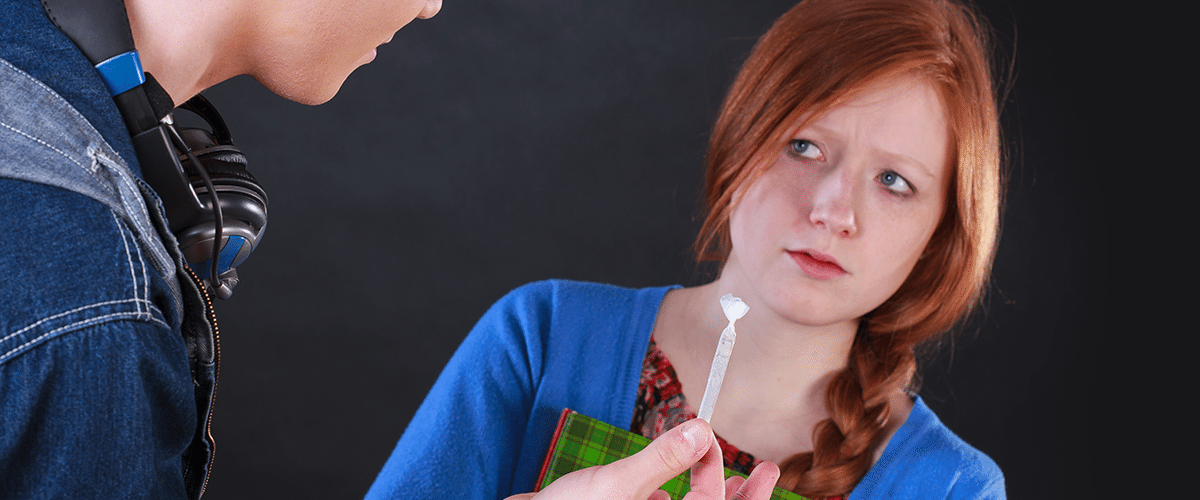[vc_row][vc_column][vc_column_text]
Findings in a new study reveal that teen marijuana use has slightly decreased since Washington legalized adult use cannabis.
The use of marijuana among youth has not increased in Washington in the three years since the state began selling marijuana to adults, according to the findings in an analysis by a group of state experts.
Under Washington’s marijuana law — Initiative 502 — the Washington State Institute for Public Policy (WSIPP) is required to conduct a series of cost-benefit analyses of legalization. Among the measures they investigate are youth use of marijuana, cannabis-abuse treatments, intoxicated driving, criminal convictions, and prenatal use of marijuana.
To examine youth use, the think tank utilized data from a biannual survey by the state Department of Health of students in the sixth, eighth, 10th and 12 grades. That survey was published earlier this year.
Cannabis use among students in each of the four grade levels was found to be stable or to have fallen slightly since I-502 was enacted. Of the 10,835 high-school sophomores surveyed, for example, 17 percent said they had consumed cannabis in the previous month. That level was 18 percent in 2006 and 20 percent in 2010.
The drop in teen marijuana use appears to be a nationwide trend, as new data from a federal survey released this week found use among the nation’s 12- to 17-year-olds to be at a 22-year low.
The Washington think tank also found that admissions for publicly funded cannabis treatments fell from 7,843 in 2012 to 6,142 in 2015. As expected, misdemeanor convictions for marijuana possession by adults dropped sharply after cannabis was legalized. Convictions for possession among minors also dropped significantly in the three years after the state’s adult use marijuana law was enacted, from 1,015 to 722, although the report didn’t attempt to explain why.[/vc_column_text][/vc_column][/vc_row][vc_row][vc_column][vc_single_image image=”17320″ img_size=”1200×250″ onclick=”custom_link” img_link_target=”_blank” link=”https://www.medicalmarijuanainc.com/majority-americans-believe-not-worth-cost-enforce-marijuana-prohibition-poll-finds/”][/vc_column][/vc_row][vc_row][vc_column][vc_column_text]The findings of the study represent a “snapshot of our progress to date and are an intermediate step towards the ultimate cost-benefit analysis of I-502,” reads the report. “Results may change as implementation of the law progresses and more outcome data become available.”
According to Adam Darnell, the state Legislature think tank’s lead researcher, evidence so far suggests that legalization hasn’t caused changes except for an increase in adult consumption in parts of the state with higher per capita sales.
“It’s not earth-shattering that people were using more of a product they’re buying more of,” said Darnell told the Seattle Times.
The analysis also found that as of the end of last year, Washington’s cannabis industry generated 6,227 full-time jobs. Since the first cannabis businesses were licensed in 2014 through 2016, wages paid have totaled $286 million.
Washington is one of eight U.S. states to pass laws permitting recreational marijuana. Adults 21 and up can possess up to 1 ounce of marijuana, 16 ounces of solid marijuana infused products, and 72 ounces of liquid marijuana infused products. Consumption must be done in private.
Since legal sales began in 2014, Washington’s cannabis market has surged. Daily sales are averaging more than $4.8 million, generating nearly $1 million in taxes daily for the state.
Learn more about the cannabis laws in Washington and throughout the U.S. through our education page or visit our news feed to keep up with the latest developments in the cannabis industry.[/vc_column_text][/vc_column][/vc_row]






